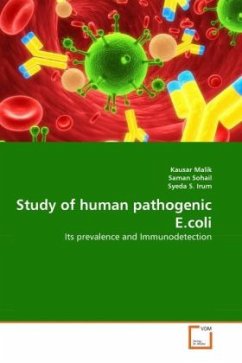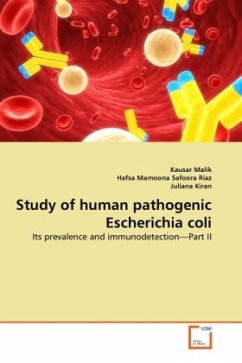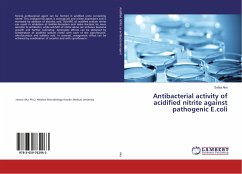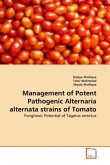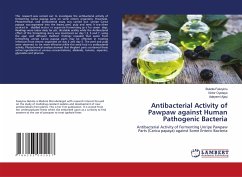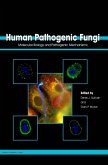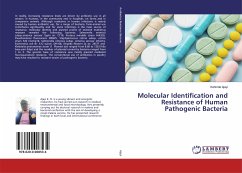More than 700 serotypes of E. coli have been identified. The different E. coli serotypes are distinguished by their "O" and "H" antigens on their bodies and flagella, respectively. The E. coli serotypes that are responsible for the numerous reports of contaminated foods and beverages are those that produce Shiga toxin, E. coli O157:H7 was first recognized as a food borne pathogen in 1982 during an investigation into an outbreak of hemorrhagic colitis (bloody diarrhea) associated with consumption of contaminated hamburgers. Present work was based on bacterial contamination of food samples that is very common due to unhygienic conditions,. Undoubtedly in past 10-20 years the impact of food borne diseases has been over whelming in Pakistan. Developed detection methods can detect more than 10,000 pathogenic E.coli in food and water samples while ten pathogenic E.coli are enough to cause human infections like diarrhea and other complicated diseases. Microbial screening and Immunological studies (Dot Blot assay) of samples was done. The purpose of this study is to develop awareness about pathogenic E.coli and importance of its timely detection.
Bitte wählen Sie Ihr Anliegen aus.
Rechnungen
Retourenschein anfordern
Bestellstatus
Storno

